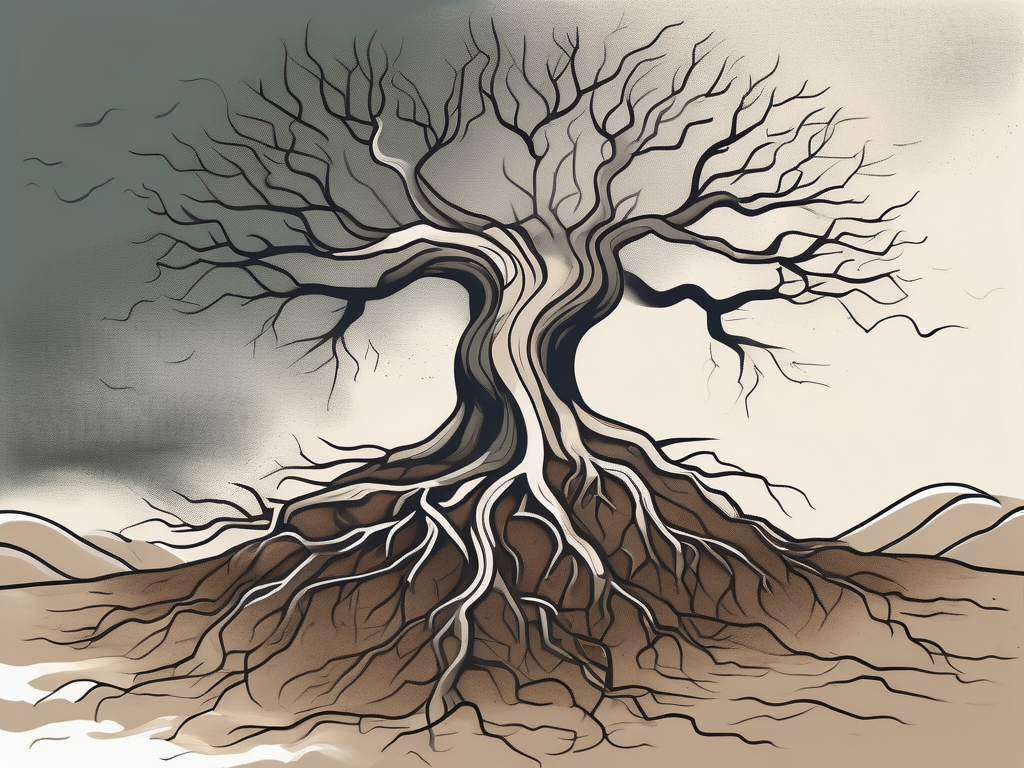Stoicism, a philosophy rooted in ancient Greece, has gained popularity in recent years for its practical approach to life. With its emphasis on self-control, resilience, and mindfulness, Stoicism offers valuable insights that can help us navigate the challenges of daily life. In this article, we will delve into the philosophy of Stoicism and explore its impact on our modern world. By examining the philosophy’s origins, principles, and real-life examples, we hope to inspire you and change your perspective on life.
Understanding the Philosophy of Stoicism
The philosophy of Stoicism, founded by Zeno of Citium in the early 3rd century BC, has captivated the minds of scholars and individuals seeking a meaningful way of life. This ancient philosophy offers profound insights into the human condition and provides practical guidance on how to navigate the complexities of existence.
The Origins and Principles of Stoicism
Stoicism emerged during a time of great upheaval in ancient Greece. Zeno of Citium, a wise and contemplative philosopher, sought to develop a philosophy that would help individuals find tranquility and purpose in a world filled with uncertainty and chaos.
At its core, Stoicism emphasizes the notion that we have control over our own actions and attitudes, regardless of external circumstances. This empowering belief encourages individuals to take responsibility for their lives and cultivate a mindset of resilience and self-mastery.
The Stoics believed in living a virtuous life through the pursuit of wisdom, justice, courage, and moderation. These cardinal virtues serve as guiding principles for Stoics, providing a moral compass to navigate the complexities of ethical decision-making.
The Key Tenets of Stoicism
Central to Stoicism are a set of principles that offer practitioners a roadmap to live a fulfilled and meaningful life. These tenets, rooted in ancient wisdom, continue to resonate with individuals seeking personal growth and inner peace.
One of the fundamental tenets of Stoicism is understanding the distinction between what is within our control and what is not. This concept, known as the dichotomy of control, teaches us to focus our energy and attention on the things we can influence, such as our thoughts, actions, and values. By letting go of attachment to external outcomes, we free ourselves from unnecessary suffering and find solace in the realm of personal agency.
Another key principle of Stoicism is the practice of acceptance. Stoics emphasize the importance of accepting what cannot be changed, recognizing that resistance to the inevitable only leads to frustration and discontent. By embracing the impermanence of life and surrendering to the natural order of the universe, Stoics cultivate a sense of inner peace and harmony.
Furthermore, Stoicism encourages individuals to maintain a calm and equanimous state of mind amidst challenges. By developing mental fortitude and emotional resilience, Stoics are able to navigate the turbulent waters of life with grace and composure. This steadfastness of character enables them to face adversity with courage and maintain a sense of tranquility even in the face of chaos.
Stoicism, with its profound insights and practical wisdom, continues to inspire individuals to lead lives of virtue and fulfillment. By embracing the principles of Stoicism, one can embark on a transformative journey of self-discovery and cultivate a resilient and meaningful existence.
The Impact of Stoicism on Daily Life
Stoicism, an ancient philosophy that originated in Greece, has had a profound impact on the way people approach and navigate their daily lives. With its emphasis on emotional resilience and rational decision-making, Stoicism offers valuable insights and practical tools for individuals seeking a more fulfilling and meaningful existence.
Stoicism and Emotional Resilience
One of the most powerful aspects of Stoicism is its emphasis on emotional resilience. Stoics believe that we have the power to control our reactions to external events. By practicing emotional detachment and focusing on what lies within our control, we can overcome adversity and develop a stronger sense of inner peace.
Stoics recognize that life is filled with challenges and setbacks. However, instead of allowing these external circumstances to dictate their emotional state, Stoics choose to cultivate a mindset of resilience and equanimity. They understand that while they may not have control over external events, they have complete control over their own thoughts, attitudes, and responses.
This philosophy encourages individuals to detach themselves from the outcomes of their actions and instead focus on the process and effort they put into achieving their goals. By shifting their focus from external outcomes to internal virtues, Stoics are able to find contentment and peace of mind, regardless of the circumstances they face.
Stoicism and Decision Making
The Stoic philosophy also provides valuable insights when it comes to decision making. By examining our actions from a rational perspective and considering the long-term consequences, we can make more thoughtful and considered choices. Stoicism emphasizes the importance of aligning our decisions with our values and living a life of integrity.
Stoics believe that decisions should not be driven by fleeting emotions or external pressures, but rather by reason and virtue. They advocate for a deliberate and reflective approach to decision making, one that takes into account the potential impact on oneself and others.
Furthermore, Stoics encourage individuals to prioritize what truly matters in life and to make decisions that align with their core values. By focusing on what is within their control and acting in accordance with their principles, Stoics are able to lead more authentic and purposeful lives.
Stoicism teaches individuals to embrace the uncertainty and unpredictability of life, recognizing that they cannot control external events but can control their own choices and actions. By adopting a Stoic mindset, individuals are empowered to make decisions that are in line with their values, leading to a greater sense of fulfillment and personal growth.
In conclusion, Stoicism offers valuable insights and practical tools for individuals seeking to navigate the complexities of daily life. By cultivating emotional resilience and making decisions based on reason and virtue, Stoics are able to find inner peace and lead more meaningful lives. Incorporating Stoic principles into one’s daily routine can have a transformative impact, enabling individuals to face challenges with strength and wisdom.
Stoicism in the Modern World
Stoicism, an ancient philosophy that originated in ancient Greece, has found renewed relevance in the modern world. Its principles and teachings offer practical tools that can aid individuals in their personal development and professional success. In today’s fast-paced society, where many individuals seek personal growth and fulfillment, Stoicism provides a roadmap for leading a more meaningful and purpose-driven life.
Stoicism and Personal Development
At its core, Stoicism emphasizes self-discipline, self-reflection, and personal growth. By cultivating these qualities, individuals can navigate the challenges and uncertainties of life with greater ease and resilience. Stoicism teaches us to focus on what we can control and accept what we cannot, allowing us to develop a sense of inner peace and tranquility.
Through self-reflection, Stoicism encourages individuals to examine their thoughts, emotions, and actions. By gaining a deeper understanding of ourselves, we can identify areas for improvement and work towards becoming the best version of ourselves. Stoicism teaches us to embrace challenges as opportunities for growth and to view setbacks as valuable lessons.
Furthermore, Stoicism emphasizes the importance of living in accordance with nature and the virtues. By aligning our actions with these principles, we can cultivate a sense of integrity and moral character. Stoicism encourages individuals to prioritize virtues such as wisdom, courage, justice, and temperance in their daily lives.
Stoicism and Professional Success
Stoicism’s principles can also have a significant impact on professional success. In today’s competitive and demanding work environment, individuals who practice Stoicism can excel in their careers by adopting a stoic mindset.
One of the key teachings of Stoicism is the distinction between what is within our control and what is not. By focusing on our own efforts and actions, rather than being consumed by external outcomes, we can maintain a sense of agency and empowerment. This mindset allows us to approach challenges with a rational and level-headed perspective, making us more resilient and adaptable.
Stoicism teaches us to embrace obstacles and setbacks as opportunities for growth and learning. Instead of being discouraged by failures, Stoicism encourages individuals to view them as stepping stones towards success. By reframing our mindset and adopting a stoic perspective, we can overcome adversity and achieve our goals.
Moreover, Stoicism emphasizes the importance of maintaining equanimity in the face of success and failure. By not being overly attached to external outcomes, individuals can avoid the emotional rollercoaster that often accompanies professional achievements or setbacks. This emotional stability allows us to make clear and rational decisions, even in high-pressure situations.
In conclusion, Stoicism offers a timeless philosophy that can guide individuals in their personal development and professional success. By cultivating self-discipline, self-reflection, and a stoic mindset, individuals can navigate the complexities of the modern world with resilience and purpose. Whether it is seeking personal growth or excelling in one’s career, Stoicism provides a valuable framework for leading a fulfilling and meaningful life.
The Power of Stoic Practices
The philosophy of Stoicism has been practiced for centuries and continues to offer valuable insights into living a fulfilling and meaningful life. Stoicism provides practical tools and techniques that can be applied to various aspects of our lives, including stress management and mindfulness.
The Role of Stoicism in Stress Management
In today’s hectic world, stress management is crucial for our overall well-being. The practices derived from Stoicism, such as mindfulness and meditation, can help us cultivate a calm and centered state of mind. By incorporating these practices into our daily routine, we can reduce stress and enhance our ability to handle difficult situations.
Stoicism teaches us to focus on what we can control and accept what is beyond our control. This mindset shift allows us to let go of unnecessary worries and anxieties, freeing up mental and emotional space for more productive and positive thoughts. By practicing Stoic principles, we can develop resilience and inner strength, enabling us to navigate through life’s challenges with greater ease.
Furthermore, Stoicism emphasizes the importance of self-reflection and self-awareness. By taking the time to examine our thoughts and emotions, we can gain a deeper understanding of ourselves and our reactions to external events. This self-awareness enables us to identify potential stress triggers and develop strategies to manage them effectively.
The Benefits of Stoic Mindfulness
Stoic mindfulness involves being fully present in the present moment and appreciating life’s simple pleasures. By practicing mindfulness, we can cultivate gratitude, find joy in the little things, and develop a greater sense of contentment. Stoic mindfulness reminds us to savor the present moment and live in harmony with the natural flow of life.
Incorporating Stoic mindfulness into our daily lives can have profound effects on our overall well-being. It allows us to slow down and appreciate the beauty and wonder of the world around us. Whether it’s the warmth of the sun on our skin, the sound of birds chirping, or the taste of a delicious meal, Stoic mindfulness encourages us to fully immerse ourselves in these experiences and find meaning in the simplest of things.
Moreover, Stoic mindfulness helps us develop a greater sense of perspective. It reminds us that our problems and worries are often temporary and fleeting. By shifting our focus to the present moment, we can detach ourselves from negative thoughts and emotions that may contribute to stress and anxiety.
By practicing Stoic mindfulness, we can cultivate a sense of inner peace and tranquility. We become more attuned to our own needs and desires, allowing us to make conscious choices that align with our values and priorities. Stoic mindfulness empowers us to live a life of purpose and fulfillment, free from the constraints of external pressures and expectations.
The Influence of Stoicism on Notable Figures
Stoicism and Historical Leaders
Throughout history, many influential leaders have drawn inspiration from Stoic philosophy. Figures such as Marcus Aurelius, the Roman Emperor, and Epictetus, the Greek philosopher, found solace in Stoic principles during challenging times. Their wisdom and guidance continue to inspire us to this day.
Stoicism and Contemporary Icons
Stoicism’s impact is not limited to historical figures; it extends to contemporary icons as well. Notable individuals like Ryan Holiday, a renowned author and entrepreneur, have embraced Stoic principles and applied them to their everyday lives. Their stories serve as a testament to the enduring influence of Stoicism.
In conclusion, Stoicism offers a unique perspective on life, emphasizing the importance of cultivating resilience, practicing mindfulness, and aligning our actions with our values. By understanding the principles of Stoicism and exploring its real-life examples, we can gain valuable insights that have the power to transform our perspective on life. Whether it’s managing stress, making better decisions, or finding personal and professional success, the wisdom of Stoicism can guide us on our journey to a more fulfilling and meaningful existence.












